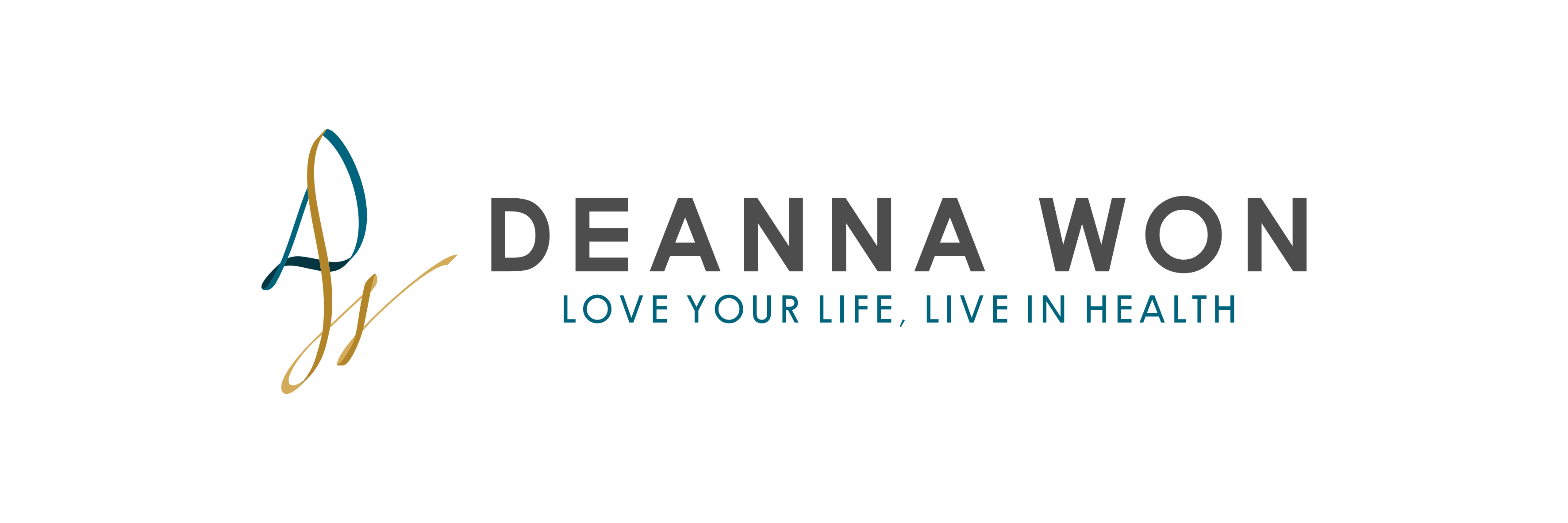From an early age, we’ve been bombarded with messages about how to eat to maintain a healthy body. We were taught to abide by the food pyramid – specifically, that we were to consume, on a daily basis, 5 – 7 servings of fruits and vegetables; 3 – 5 servings of wholegrain foods such as breads, cereals, and pasta; 3 servings of dairy like milk, yogurt, and cheese; and 2 servings of protein which include meat, eggs, and nuts to grow to be “big and strong.” Yet, at the same time, the school cafeteria served pizza, tater tots, and processed meats as part of that healthy diet.
The numbers and messages have been drilled into our minds, not just from our health teachers at school, but also in all the advertising campaigns, telling us that drinking milk is the only way to build strong bones and that your primary source of protein comes from eating meat. With continued education about food, health, and the knowledge that I obtained in overcoming my own experience with cancer, I have learned that the truth behind some of this information may be more related to profit margins than in seeing a nation of healthy people.
Recently, I watched the movie “What the Health1,” which is currently available on Netflix® and online at www.whatthehealthfilm.com, at the recommendation of some of my clients, who shared with me that it was one of the biggest reasons that they decided to change their diets. This movie is a deep investigation into what may be perceived as the agenda behind the information that has been dispersed to the American people for so many years. Some foods that we have been told are essential to our health may not necessarily be in the interest of our body’s optimal function, but in the vested monetary interest of many large corporations that continue to fund this type of information.
In this documentary, there are studies that state how some of the recommended foods by the government and other health-related agencies are the same foods that cause the diseases that these organizations claim to prevent. Yet, when the film’s co-director and star, Kip Anderson, investigated the funding of these organizations, he was able to uncover some eye-opening material.
What do asbestos, arsenic, tobacco and processed meats have in common? They have all been classified by the World Health Organization (WHO) as group 1 carcinogens, meaning that they are likely to cause cancer in humans2. According to the WHO, processed meats are defined as any meats that have been altered by being salted, smoked, cured, fermented, flavor enhanced, or preserved through other processes. Therefore, continued consumption of processed meat may increase your risk of cancer. With this new information, which the WHO published in 2015, one might think that organizations that promote research and provide information to the public about cancer would insist that people avoid processed meats altogether. In looking up this information myself on the American Cancer Society website, I did find that this study is mentioned. However, they also state that the “occasional hot dog or hamburger is okay”3. After the release of this documentary, the American Cancer Society posted this on their website:
“Our dietary guidelines recommend a diet rich in plant foods because evidence suggests eating vegetables and fruit may lower the risk for some types of cancers. The guidelines also note that vegetarian diets can be quite health-promoting. They tend to be low in saturated fat and high in fiber, vitamins, and phytochemicals, and do not include eating red and processed meats. We know vegetarian diets may be helpful in lowering cancer risk, however, the data are not yet clear that they are more beneficial than a healthy diet that contains a small amount of animal products.
“The bottom line is it’s clear reducing red and processed meat consumption is beneficial. What is not so clear is whether totally eliminating them adds any additional benefit. And being that our guidelines are evidence-based, we have to stick to what we know.”4
Although it appears that they are using the best information that they may know, their funding sources may prove otherwise. According to their website, one of their sponsors touts that they produce 20% of all beef, chicken and pork products in the United States under various brand names5. Part of the product line-up under these brands include processed meat products like sausage, bacon, hamburgers, and hot dogs. Another sponsor is also a producer of well-known canned and packaged food items.
Some of the film’s experts also state that there is a link between the consumption of dairy products and certain types of cancer. Susan Levin, a registered dietician who contributed to this film, states that dairy products, even in their purest forms, are related to hormone-related cancers, such as of the breast, prostate, and ovary. Consumption can increase a man’s chance of getting prostate cancer by 34%. For women who have been diagnosed with breast cancer, it can increase their mortality rate by 49%.
According to the Journal of the National Cancer Institute, the basis for some of this information in the documentary, there is a direct link between high-fat dairy consumption and increased mortality rates in women with breast cancer. However, this study also points out that there is no conclusive evidence that low-fat dairy poses this same risk6. At the same time, milk from any animal is primarily used in the feeding of their young. Cow’s milk, generally promoted as a main source of calcium, is, in fact, packed with growth hormones that were never intended for human consumption. It may seem obvious to say, but cow’s milk contains all the nutrients, proteins, and hormones to feed young calves. If you think about it, humans are the only species that drink the milk of another species, and continue to drink milk, or eat milk-based products, throughout adulthood. If you observe animals, once the baby animal becomes a full-grown animal, it no longer consumes milk. The consumption of dairy in any form could potentially lead to the increased risk of hormonally-sensitive cancers. In looking up the strategic partners for the government-funded Choose My Plate (www.choosemyplate.gov), which provides advice on how we should eat to maintain a healthy diet, I found three major dairy companies that contribute to this USDA program, as well as the players in the meat industry.
Another point that was discussed in the film is the role of the pharmaceutical industry in the recommended foods that we eat. According to Paige Tomaselli, a senior attorney for the Center of Food Safety, “the pharmaceutical industry sells 80% of all the antibiotics that it makes in the United States to animal agriculture.” This means that even the pharmaceutical industry has a vested interest in the consumption of animal-based protein products.
After the release of this documentary, there have been a few articles written to debunk the statements made by the film’s co-director and star Kip Anderson, the doctors who chose to share their beliefs about how diet affects our health, as well as the nutritionists and experts that contributed to this film. As a cancer survivor, I believe that my diet played a foundational role in my recovery from ovarian cancer. I could see the benefits and impacts of the changes I made in adopting an alkaline, plant-based diet to reverse the damage that had been done to my body. I have also seen how the elimination of animal-based proteins have helped others to reverse the effects of chronic diseases like cancer, high blood pressure, and diabetes.
There will likely always be doubt and skepticism whenever changes to the standard American diet are proposed. Partly, I think that it’s because we, as consumers, have grown accustomed to enjoying the foods that we want to enjoy and changing that can be challenging. However, I highly recommend that you watch this film and make the decision for yourself as to which foods will contribute to your health and wellbeing. When seeking guidance from the different agencies and organizations on the recommended diets and daily allowances for you and your family, be cognizant if that source is looking out for your best interest, or the interest of its contributors.
Ready to make your health a priority? Contact me here to schedule your consultation.
References:
- Anderson, K. and Kuhn, K. (Directors). (2017, March). What the Health [Video file]. Retrieved from http://www.whatthehealthfilm.com/
- IARC Monographs on the Evaluation of Carcinogenic Risks to Humans. (n.d.). Retrieved February 19, 2018, from http://monographs.iarc.fr/ENG/Classification/latest_classif.php
- Simon, S. (2015, October 26). World Health Organization Says Processed Meat Causes Cancer. Retrieved from https://www.cancer.org/latest-news/world-health-organization-says-processed-meat-causes-cancer.html
- Does the American Cancer Society Promote Meat? (n.d.). Retrieved February 19, 2018, from http://pressroom.cancer.org/index.php?s=20296&item=29968
- What We Do. (n.d.). Retrieved February 19, 2018, from https://www.tysonfoods.com/who-we-are/our-story/what-we-do
- Kroenke, C. H., Kwan, M. L., Sweeney, C., Castillo, A., & Caan, B. J. (2013, March 14). High- and Low-Fat Dairy Intake, Recurrence, and Mortality After Breast Cancer Diagnosis | JNCI: Journal of the National Cancer Institute | Oxford Academic. Retrieved February 19, 2018, from https://academic.oup.com/jnci/article/105/9/616/986948

